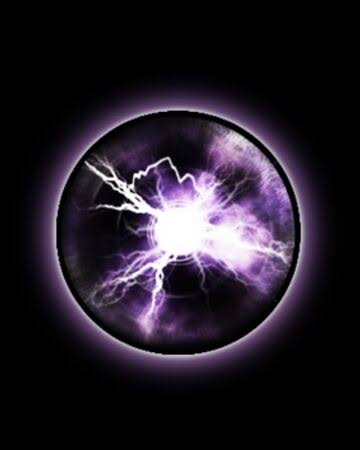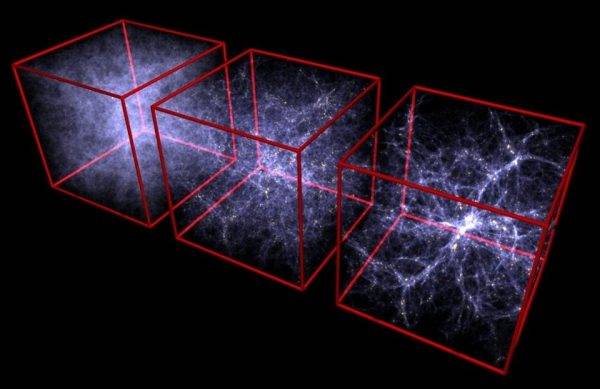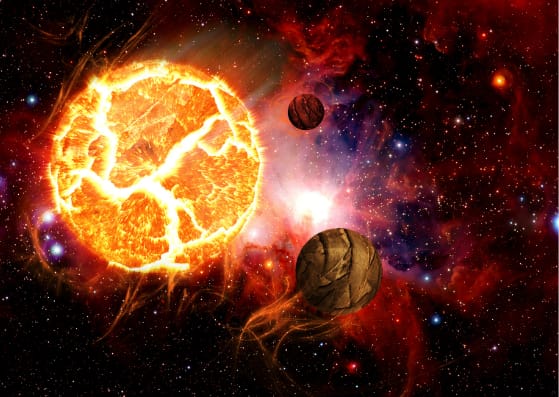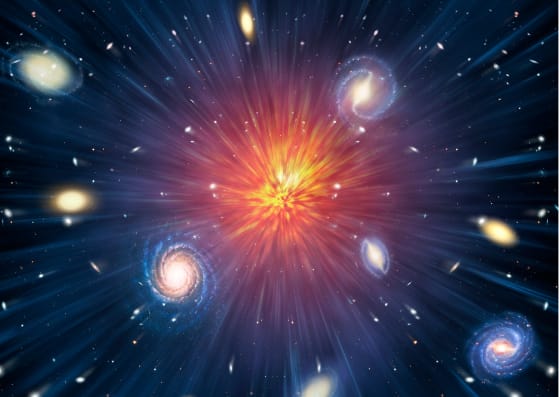According to recent research published in the journal Proceedings of the National Academy of Sciences, the Universe may soon grind to a halt after nearly 13.8 billion years of relentless growth.
Three scientists have published a new study in which they seek to model the existence of dark energy, a mysterious force that appears to be expanding the universe faster, based on earlier studies of the expansion of the cosmos.
Dark energy, according to the team’s model, is an essence that can disintegrate over time, not a permanent force of nature.
What Was The Observation Of Research?
Researchers have found that although the expansion of the universe is accelerating over billions of years, the repulsive force of dark energy may weaken.
According to their model, the acceleration of the universe could end quickly over the next 65 million years, then within 100 million years the universe could completely stop expanding and instead enter an era of slow contraction, ending billions of years in the universe. Now with death or perhaps rebirth of time and space.
And all of this could happen “surprisingly” quickly, said study co-author Paul Steinhardt, director of the Princeton Center for Theoretical Sciences at Princeton University in New Jersey.
“Dating back 65 million years, the asteroid Chicxulub struck Earth and wiped out the dinosaurs,” Steinhardt told Live Science. “On the scale of the universe, 65 million years is very short.”
Why Can’t We Believe This Hypothesis?
However, the predictions in this document cannot be verified at this time because this model only relies on past observations of expansion and the current nature of dark energy in the universe is highly mysterious. For now, it can only remain as a theory.
Read: Void before Big bang: Theories of Nothing comes from nothing
What Is Void Energy?

Scientists have realized that the expansion of the universe has been accelerating since the 1990s. The space between galaxies is expanding faster than it was billions of years ago.
Scientists have named the mysterious source of this acceleration, dark energy. An invisible entity that acts against gravity, appearing to push the heaviest objects in the universe rather than pulling them together.
Dark energy makes up about 70% of the universe’s total energy mass, but its properties remain a complete mystery. It is a cosmic constant, according to a popular notion proposed by Albert Einstein.
If this is accurate, because dark energy’s force can never change, the cosmos must continue to expand (accelerate) indefinitely.
Contrary to popular belief, dark energy does not have to be constant in order to be consistent with past measurements of the universe’s expansion.
Dark energy is more accurately described as an essence, a dynamic field that changes over time. (In a 1998 study published in the journal Physical Review Letters, Steinhardt was one of three scientists who proposed the notion.)
Unlike the cosmic constant, an essence’s motility and proportions can make it either repulsive or appealing. At any given point in time, potential energy exists. The nature of the universe has been repulsive for the past 14 billion years.
But for most of this period it made a negligible contribution to the expansion of the universe relative to radiation and matter. Things changed about 5 billion years ago, when nature became the dominant component and gravitational repulsion accelerated the expansion of the universe.
“The question raised by this article is whether this acceleration should last forever?” Steinhardt said. “If not, what are the alternatives and how quickly can things change?”
Read also: What is the difference between Dark Energy and Dark Matter?
How Does Dark Energy Dies?

In their study, Steinhardt and colleagues Anna Ijas of the University of New York and Kosmin Andrei of Princeton predicted how the properties of nature would change over the next billion years.
The team created a physical model of an integer that exhibits a repulsive and attractive force over time, consistent with past observations of the expansion of the universe.
Once the group’s models were able to reliably reproduce the history of the expansion of the universe, they expanded their predictions about the future.
“Surprisingly, the dark energy in their model can decay over time,” Hinshaw said. “Her power could be weakened. And if you do that in one way or another, you will eventually lose the anti-gravity properties of dark energy and become more like normal matter again.”
According to the group’s model, the repulsive force of dark energy could be in the process of beginning billions of years ago and potentially rapidly declining.
In this scenario, the accelerated expansion of the universe is already slowing down today. Sooner or later, perhaps after about 65 million years, this acceleration could stop completely, and in just 100 million years dark energy could become attractive and the entire universe could begin to contract.
In other words, space can begin to shrink after nearly 14 billion years of growth.
“This is a special kind of contraction that we call slow contractions,” Steinhardt said. “Instead of expanding, space is shrinking very slowly.”
At first, Steinhardt said, the contraction of the universe would be so slow that the hypothetical people still living on Earth would not notice the change.
How Will Our Universe End?

Then one of two things could happen, Steinhardt said. “The universe shrink until it collapse oneself in the big crunch that ends up with space-time as we know it, shrinks to such a degree that the universe will return to a state similar to its original condition.
And another big bang or a big bounce will occur, creating a new universe from the ashes of the previous universe.”
In the second scenario (described by Steinhardt and others in a 2019 paper in the journal Physics Letters B), the universe follows a cyclic pattern of expansion and contraction, contraction and rebound. This pattern is constantly being destroyed and rebuilt.
If this were true, Steinhardt said, our present universe would not be the first or the only universe, but rather the last in an endless series of universes that expanded and contracted before us. And it all depends on the volatility of dark energy.
Can This Really Happen?
How plausible is all this? Hinshaw said the new paper’s interpretation of essence is “a perfectly reasonable assumption about what dark energy is.”
Because all our observations of the expansion of the universe come from objects millions to billions of light-years away from Earth, he added, current data can only tell scientists about the universe’s past, not the present or the future.
So the universe is getting close to contraction, and you won’t have a chance to know about it until the contraction phase begins.
“I think it depends on how persuasive the theory you are thinking of, and more importantly, how testable it is.” Hinshaw added.
Conclusion
However, Steinhardt admits that there is no reliable way to determine if the essence is real or whether the universe’s expansion is slowing. For the time being, all that remains is to reconcile the hypothesis with previous observations. In their recent study, the authors do an excellent job of this.
